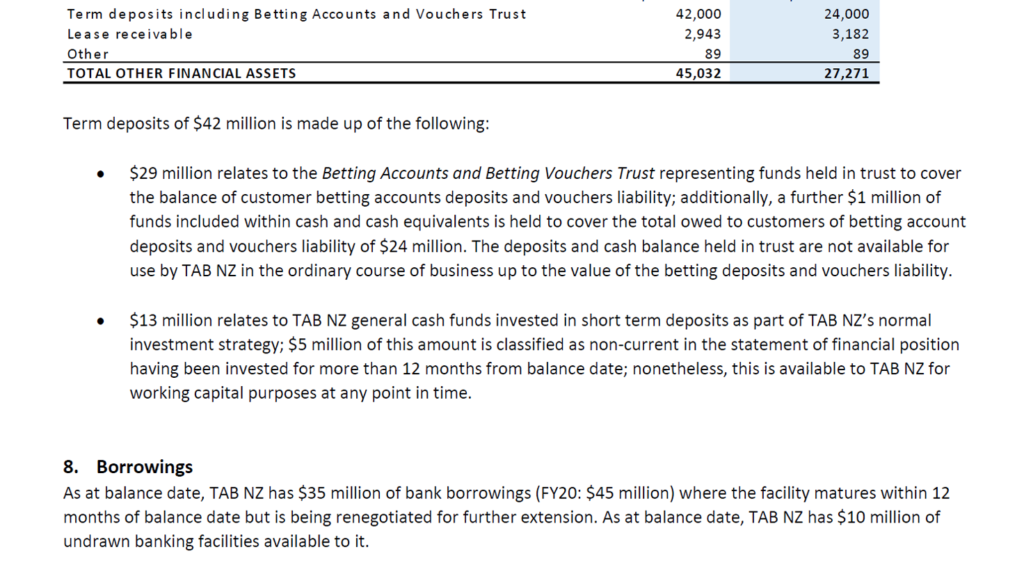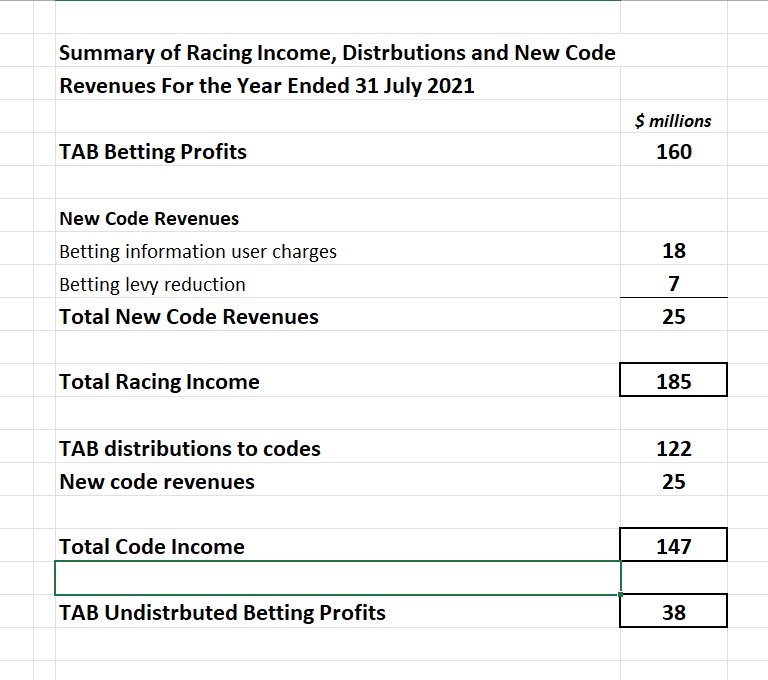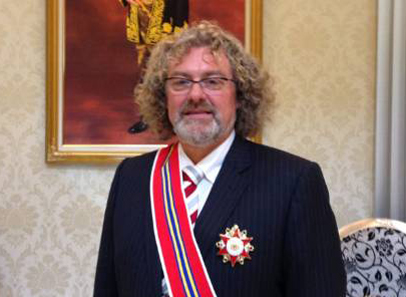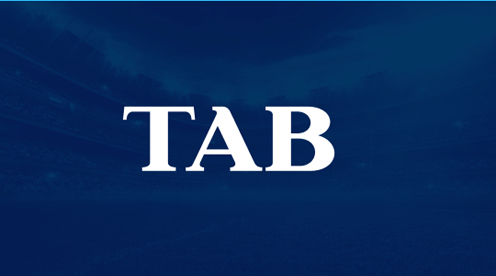The TAB is ignoring its statutory obligation to maximise
profits for the benefit of the racing codes
by Brian de Lore
Published 2nd November 2021
So much deceit, woke politics, and cancel culture exists in the world today that it came as no surprise to discover TAB NZ had joined the fray and, although not yet telling lies, they’ve instead withheld information over the past few months that would raise serious stakeholder questions.
But the stakeholders of New Zealand racing and the true owner of the TAB, the thoroughbred and harness racing clubs that started the TAB in 1951, are used to poor treatment, getting asset-stripped and trampled over while barely offering a murmur of protest.
This year, the new TAB board under government control came into existence on August 1st, taking over after 18 to 20 months of RITA (Racing Industry Transition Authority) and before that the infamous NZRB (Racing Board), which presided over a series of expensive industry misdemeanours for over a dozen years.
In 2020 when RITA was in the middle of its reign of control, several weblogs appeared on this platform complaining bitterly of RITA’s refusal to post a Half-Year Report. Every year since 2006, the TAB website (https://www.tabnz.org/annual-reports?page=0) had published a Half Year Report, but in 2020, RITA, in its infinite wisdom, decided the tradition would cease.
Cover up of mounting debt
Why did they suddenly stop? Well, for no other reason than to cover up mounting debt (reaching $45 million by mid-2020) and poor TAB performance. Rather than baffle brains with a deceptive report as NZRB had regularly produced, RITA elected to pull the wool over all racing’s eyes with no report at all.
COVID-19 came along and helped save the TAB to a certain extent when racing ceased for a period, resulting in non-payment of prizemoney while punters remained in lockdown. With little else to do, punting turnover increased and improved the books.
Even so, Minister of Racing Winston Peters had to negotiate a $50 million bailout from the coalition government in the 2020 budget to stop the TAB from going into receivership – the TAB had operated illegally as insolvent for as long a year with the Minister’s knowledge.
In April 2021, RITA published a Half Year Report, but a couple of months later decided to join the cancel culture movement and remove it. Why? The half-year version isn’t audited, so perhaps it would contradict the Annual Report when eventually published or possibly contain information best kept from the eyes of racing’s stakeholders and participants.
The latter applied. From a copy saved to The Optimist’s hard drive before its removal from the website, it showed dubious financial management of TAB earnings – $13 million for the half-year kept by the TAB in term deposits instead of transferring to the codes to bolster prizemoney.
Minimum stake would rise to $20,000 overnight
Thirteen million dollars injected into prizemoney at ground level would take the minimum stake from $12,000 to $20,000 – a paradigm shift that would inject life into New Zealand racing and enable trainers to retain their shrinking band of presently disillusioned owners.
The TAB is a service provider to the racing industry with a duty to provide funding to sustain racing. It’s not a corporation that invests its profits elsewhere for a rainy day and/or for use for its own expansion.
But on page 13 of the now-deleted report, the note of explanation to the $13 million refers explicitly to ‘the TAB NZ’s normal investment strategy.’ Bollocks, there is no investment strategy (the term made up for their own convenience). It also mentions money for ‘working capital at any point in time,’ which can only be interpreted as adding a further carriage to the gravy train.
From page 13 of the deleted report:

TAB NZ did well in the first full COVID year and made a profit of $160 million (shown in the table below. In the 2020-21 season, it reduced bank debt by $20 million (from $45 million to $25 million). Take the $20 million off the TAB undistributed betting profits (table below), and it still had $18 million left. So, why did it retain that cash and invest it rather than distributing it to the codes?
It wasn’t withheld to repay more debt because the TAB Statement of Intent 2022-2024 says the remaining $25 million of debt will not be repaid until the year 2025.
In the previous two TAB financial years, the full accounted-for profit figure got distributed to the codes, but not this year. Did the TAB look at the new funding going directly to the codes from BIUC (Betting Information User Charges) and the Betting Levy, which totalled $25 million, and reduce the distribution accordingly so that the codes could only maintain or marginally increase prizemoney?
No other explanation could exist. Racing is getting shafted and suffocated at the same time by this intense government control through a Minister of Sport/Racing who has appointed a board top-heavy with non-racing sportspeople.

Fifteen months after the Racing Act of 2020 legislation and the three codes still haven’t drawn up a commercial agreement with TAB NZ, and the tail is still wagging the dog, which flies in the face of the legislation. All-round incompetency of the highest order. The codes are no more than the three stooges.
Anyone involved in ownership is fully aware of the continued decline of the sustainability of racing a horse. Yet, TAB NZ and NZTR boards have both displayed little appetite for injecting all available funding into prizemoney to stem the haemorrhaging of owners.
Are the boards, and especially TAB NZ, disengaged enough not to care or understand anything about the coalface of the industry, or is this woke-infested world hellbent on the redistribution of wealth commencing its master plan to kill-off racing?
Look at the new TAB NZ board that the ‘missing in action’ Minister of Sport/Racing, Grant Robertson, appointed to take over last August:
Mark Stewart, MNZM (Chair)

Stewart knows nothing about racing and has never been seen on a racecourse. Professional director with numerous roles. In 2018 honoured for service to the Community and Sport; in 2010 received the Sir Richard Hadlee Sports Trust’s ‘Most Outstanding Voluntary Administrator of the Year’; Sport Canterbury Outstanding Service Award 2010; the New Zealand Rugby League Outstanding Service Award in 2000.
Previous roles: Chairman, Mainland Football Federation; Organising Committee for FIFA under 20 World Cup; Chairman, New Zealand Football Foundation.
Anna Stove (Deputy Chair)
Grew up on a thoroughbred stud farm and former committee person of the Counties Racing Club. Knows racing.
William (Bill) Birnie, CNZM
Came from NZRB and RITA boards before this appointment. Professional director on various sporting boards. Lives in Sydney, doesn’t bet and lacks racing knowledge.
Paul Bittar
Australian resident having had various roles in racing governance in Australia, New Zealand, and the United Kingdom. Consulted on wagering for Sportsbet in Australia when Sportsbet made an offer for partnering with the TAB three years ago.
Jason Fleming
Hawkes Bay resident with racing experience. Currently on NZTR board, former CEO of the Hawkes Bay Racing Club and knows racing thoroughly.
Wendie Harvey
Professional Director on 15 boards, including the Commissioner on the Gambling Commission, which deals with casino licensing applications and has the powers of a Commission of Inquiry. No racing knowledge or experience. On the TAB NZ website is said to have, ‘strong experience in culture transformation,’ which may be ominous for racing.
Raewyn Lovett, ONZM
Lawyer and professional director on numerous boards, including deputy chair of Sport NZ, co-chair of the International Working Group on Women and Sport, and former Chair of Netball NZ. She says in her bio: “…have a keen interest in sport and the role that sport and recreation plays in well-being.” (that doesn’t sound like someone planning to increase betting turnover).
History says they will not contribute positively
Why were Mark Stewart, Wendie Harvey, and Raewyn Lovett appointed? They have no industry knowledge at all, but all are graduates from the NZ Institute of Directors, and all are sitting on this board for the wrong reasons (as far as racing is concerned), and they will offer nothing in the long term.
Harvey and Lovett were appointed because they satisfied the Government’s gender equality rules for boards. Shame because so many highly qualified racing women who understand the business could have filled those roles and done a great job.
History tells us Harvey and Lovett have no possible chance of making a meaningful contribution, but it also says the same about Robertson, who appointed them.
If this board as a collective had the best interests of racing at heart, they would immediately and thoroughly investigate the partnering of the TAB with an international operator.
Top-heavy with professional directors from sport
But only Jason Fleming and Anna Stove will be passionate about the future of the horse business in New Zealand. Paul Bittar has loads of horse experience. However, the board is top-heavy with professional directors involved in a sport, which is no accident, given that Grant Robertson was the Minister of Sport before he became Minister of Racing.
Nothing is more certain that sport will soon have its hand out for a bigger slice of the TAB pie, and although the interests of the racing codes accounts for 80 percent of the betting volume, the 20 percent bet on sport now has a controlling interest on the board and the running of the business.
This brings us back to the $13 million put on deposit rather than paid to the codes. Remember, that $13 million represented only half the year – it grew to $18 million for the full year.
Where is that money heading with this year’s precedent of withholding funds when racing desperately needs more money injected into prizemoney to retain its diminishing collective of poverty-stricken owners?
Sport muscles in on the TAB
If you doubt the intention of sport, then consider these facts. Firstly, every sport that returned from the Tokyo Olympics is screaming out for more funding, and the CEO for Sport NZ, Raelene (failed miserably in Australia) Castle, is leading the relentless charge at Grant Robertson for more cash to chase gold in Paris in 2024.
Secondly, even if the new board considered partnering the TAB with a betting operator for a much better financial result, and discovered it would be the best outcome for racing, would they proceed? Partnering would eventually make them redundant as directors of the TAB with a personal loss of directors’ fees, and would they consider it to be in the best interests of sport?
Whatever way you look at it, racing is now in a deeper hole than it was two years ago, one year ago, or even a month ago. Why have the codes been so uselessly representative of the interests of the people they supposedly represent. Lack of leadership has resulted in a lack of action.
The trouble with people working in the horse industry after years of repression and getting fleeced by infiltrators from the corporate world, is contained in this G.K Chesterton quote:
“When men choose not to fight, they do not thereafter become incapable of winning; they then become incapable of fighting for anything.”

